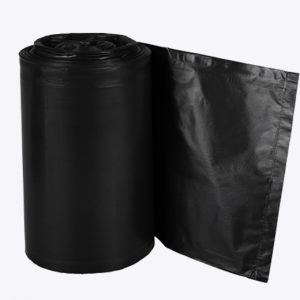
In our quest for a more sustainable and eco-friendly lifestyle, every small choice we make can contribute to a healthier planet. One such choice that often goes unnoticed but holds significant potential for positive change is the use of compostable bin liners. These innovative alternatives to traditional plastic liners are playing a crucial role in reducing our carbon footprint and promoting responsible waste management.
The Problem with Plastic:
Plastic pollution has become an environmental crisis that threatens ecosystems, wildlife, and even human health. Traditional plastic bin liners, often used to collect household waste, contribute to this problem by taking centuries to decompose. As they break down into smaller pieces, they release harmful microplastics that contaminate soil and waterways. This cycle of plastic pollution impacts everything from marine life to our own food chain, underscoring the urgent need for more sustainable alternatives.
Enter Compostable Bin Liners:
Compostable bin liners offer a ray of hope in the battle against plastic pollution. These liners are typically made from plant-based materials like cornstarch, potato starch, or other biodegradable substances. Get in touch to get these liners with the ability to break down naturally in a composting environment, returning to the Earth without leaving behind harmful residues.
Benefits Beyond Convenience:
Choosing compostable bin liners goes beyond the mere act of waste disposal; it’s a conscious decision that aligns with a greener lifestyle. Here are some key benefits:
1. Reduced Plastic Waste: By using compostable bin liners, you’re directly reducing the demand for conventional plastic bags. This helps cut down on the production of plastic and its associated environmental impact.
2. Soil Enrichment: Compostable bin liners break down into organic matter that enriches soil quality, supporting plant growth and biodiversity.
3. Less Energy Consumption: The production of compostable materials generally requires less energy compared to traditional plastic production, which relies heavily on fossil fuels.
4. Minimized Greenhouse Gas Emissions: As compostable materials decompose, they release fewer greenhouse gases compared to plastics that release methane during their long decomposition process.
5. Encouraging Sustainable Practices: Using compostable bin liners encourages conversations about waste reduction and composting, fostering a culture of responsible consumption within communities.
Tips for Using Compostable Bin Liners Effectively:
– Check for Certifications: Look for bin liners that are certified compostable by recognized organizations, ensuring their authenticity and effectiveness in breaking down.
– Proper Disposal: Compostable bin liners are meant for industrial composting facilities. Ensure you dispose of them in a composting bin or facility, as backyard composting might not provide the required conditions for efficient decomposition.
– Avoid Contamination: Keep non-compostable items out of your compostable bin liner to prevent contamination of the composting stream.
In Conclusion:
As individuals striving for a more sustainable future, our choices matter. Opting for compostable bin liners is a simple yet impactful way to contribute to a healthier planet. By reducing plastic waste, enriching soil, and promoting responsible waste management practices, we’re taking steps towards a greener tomorrow. Each time you line your bin with a compostable alternative, you’re making a conscious decision that echoes through the cycles of nature, leaving a positive mark on our world.